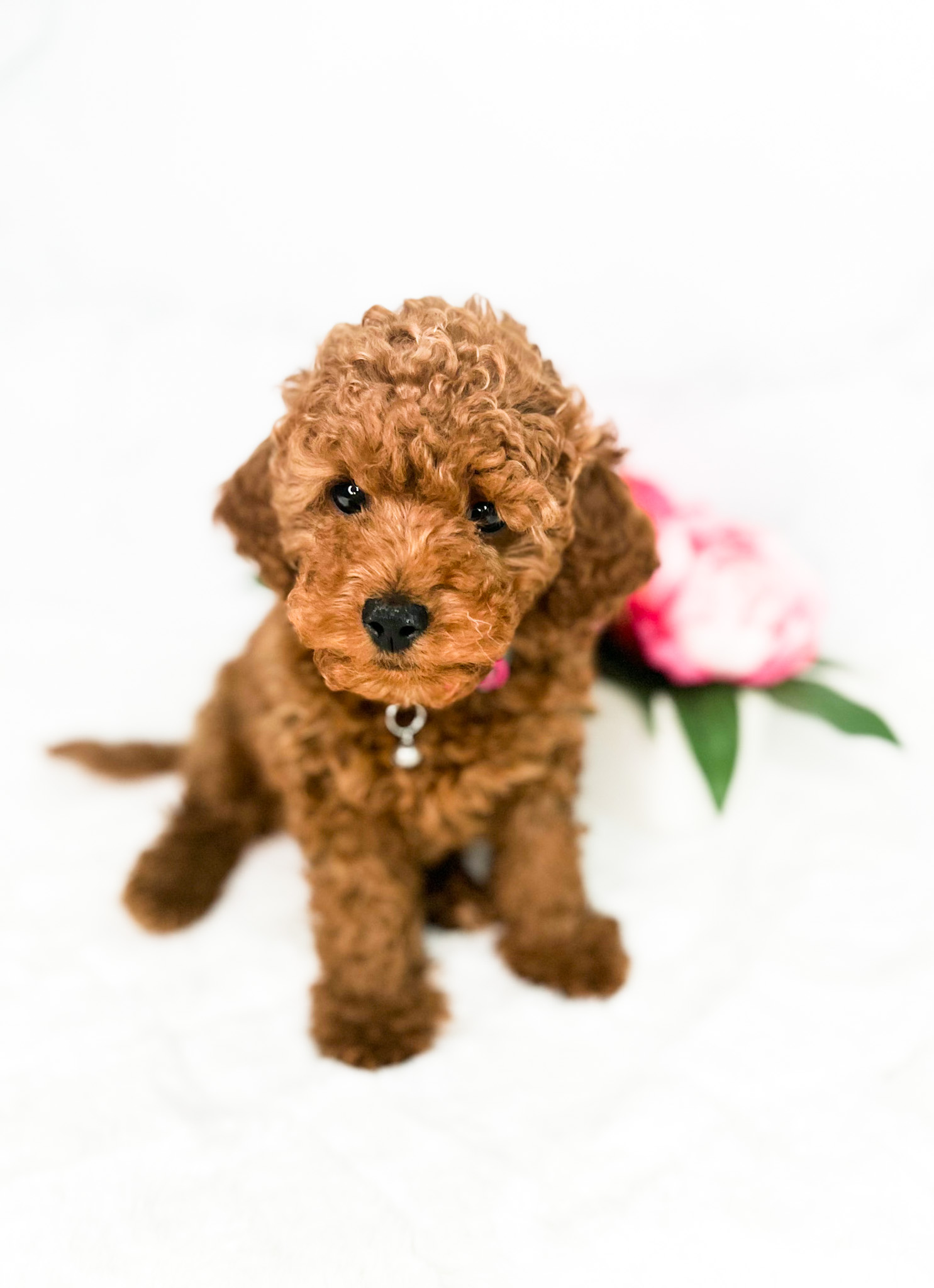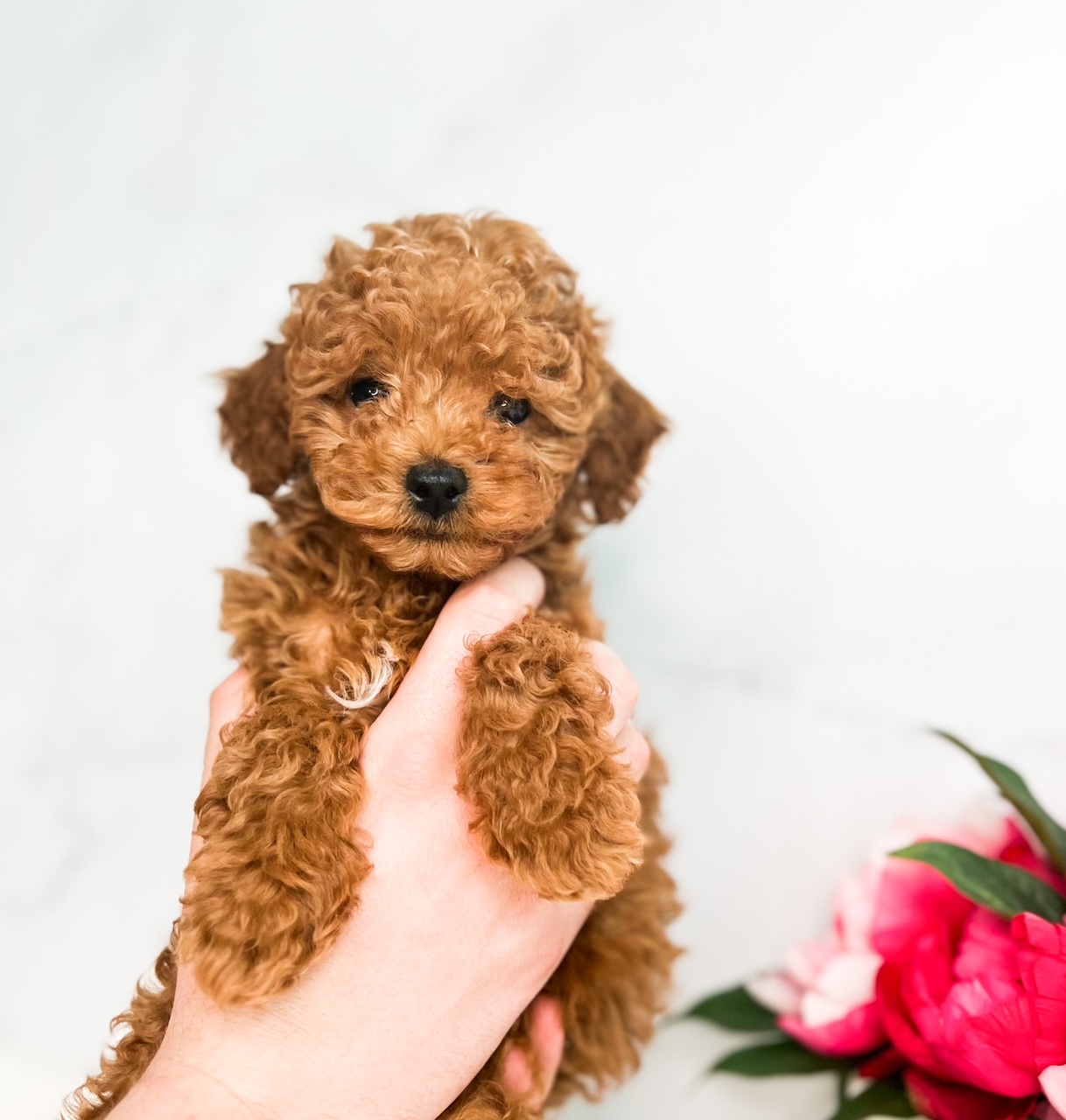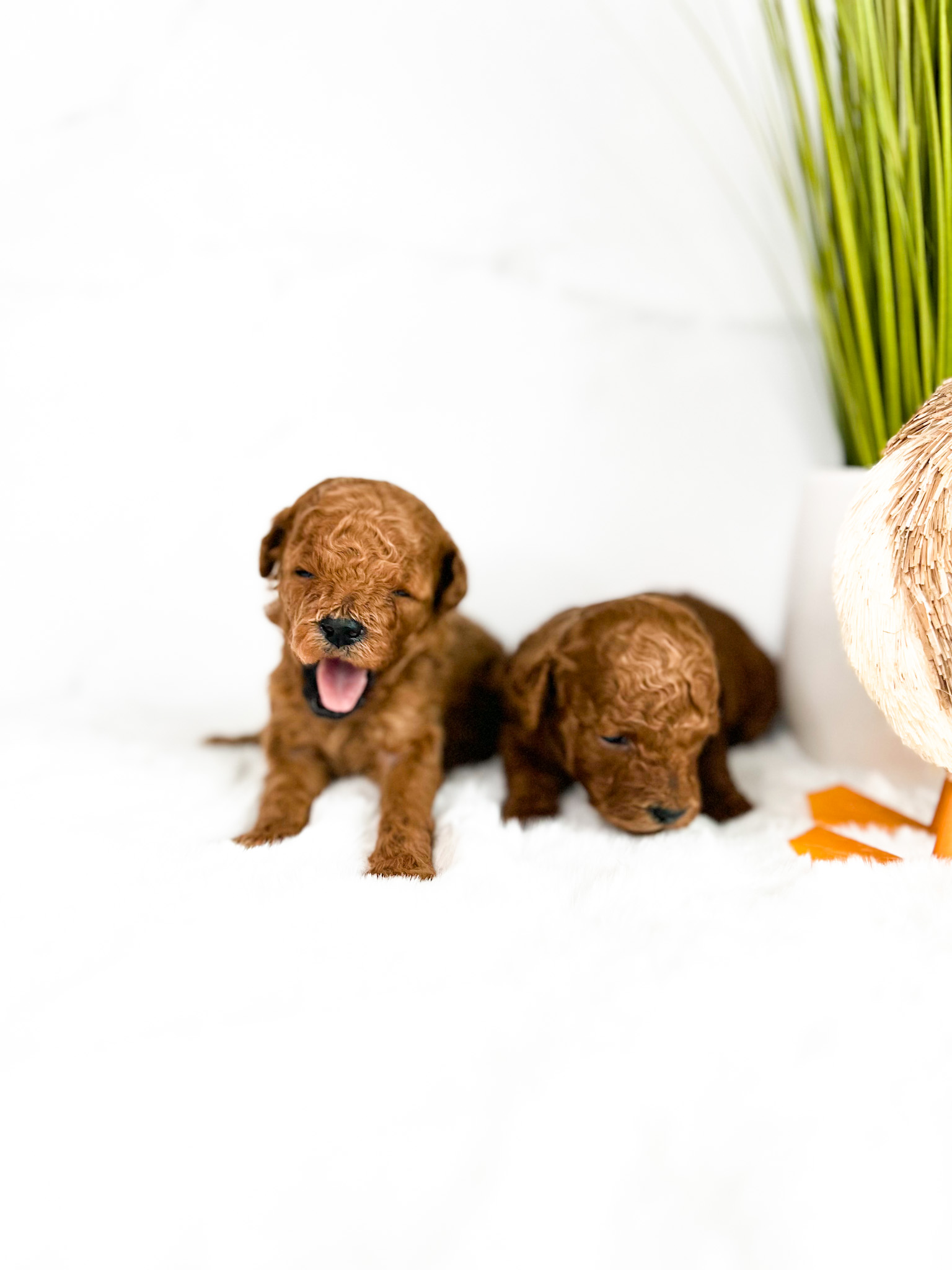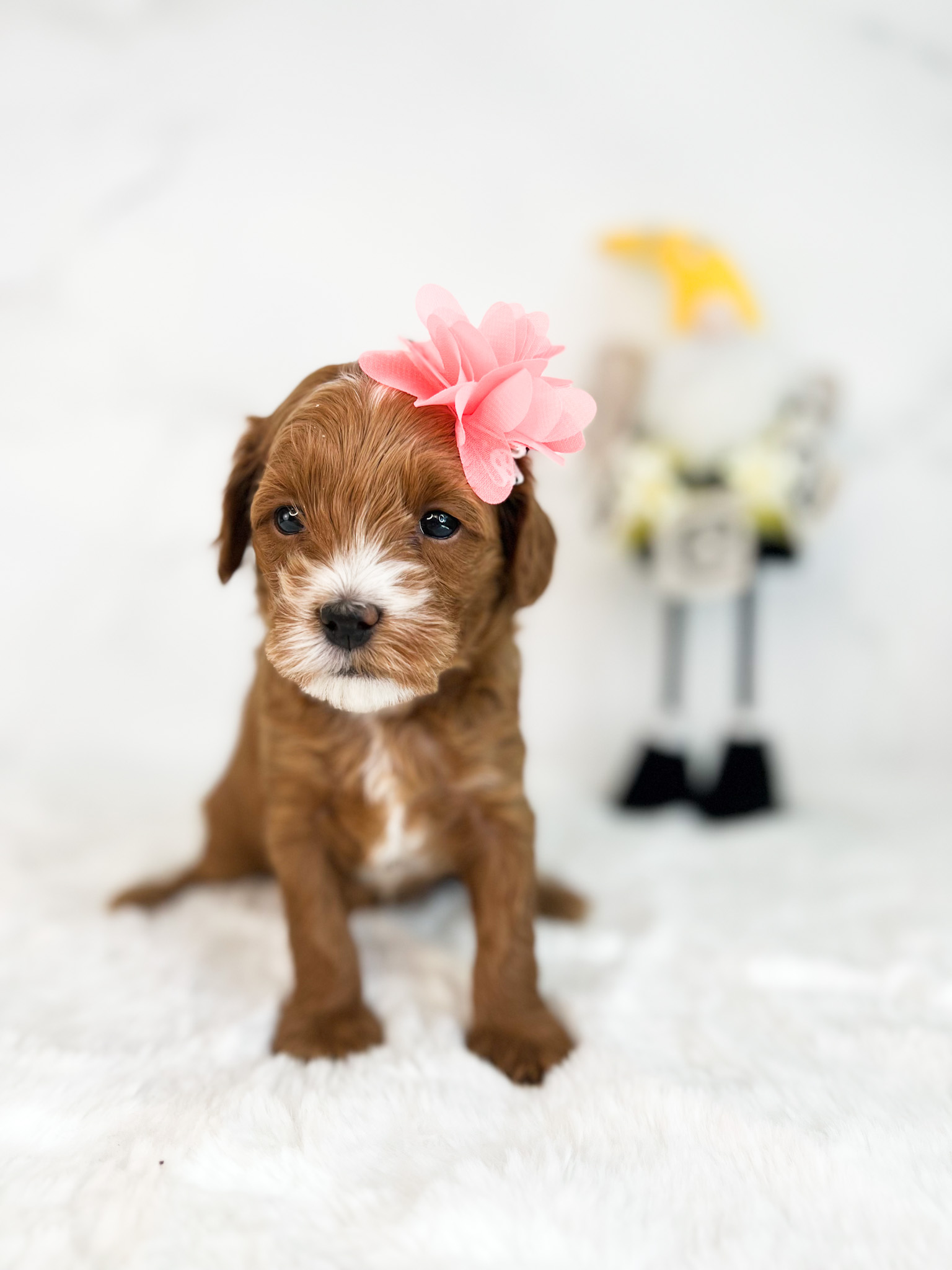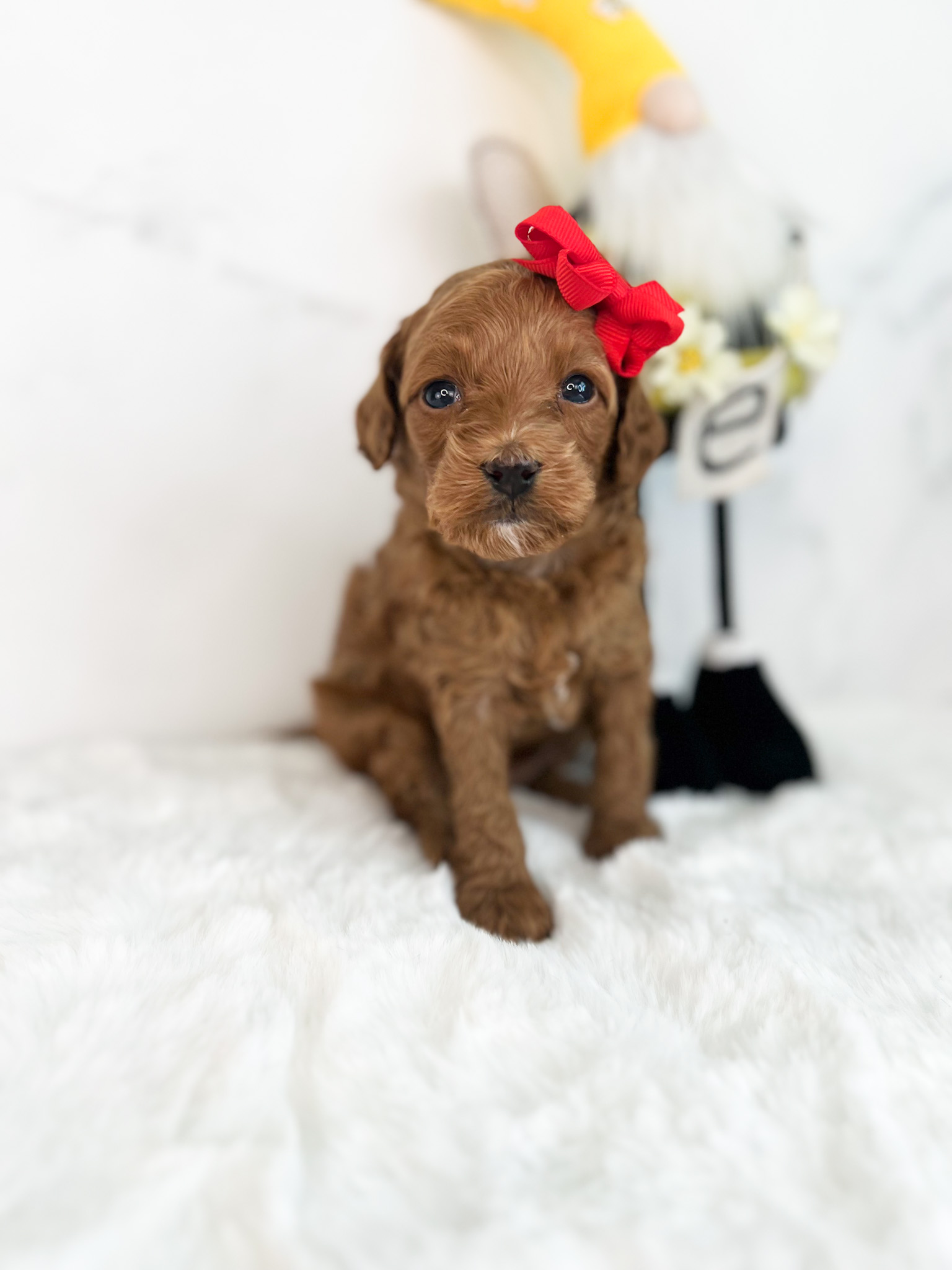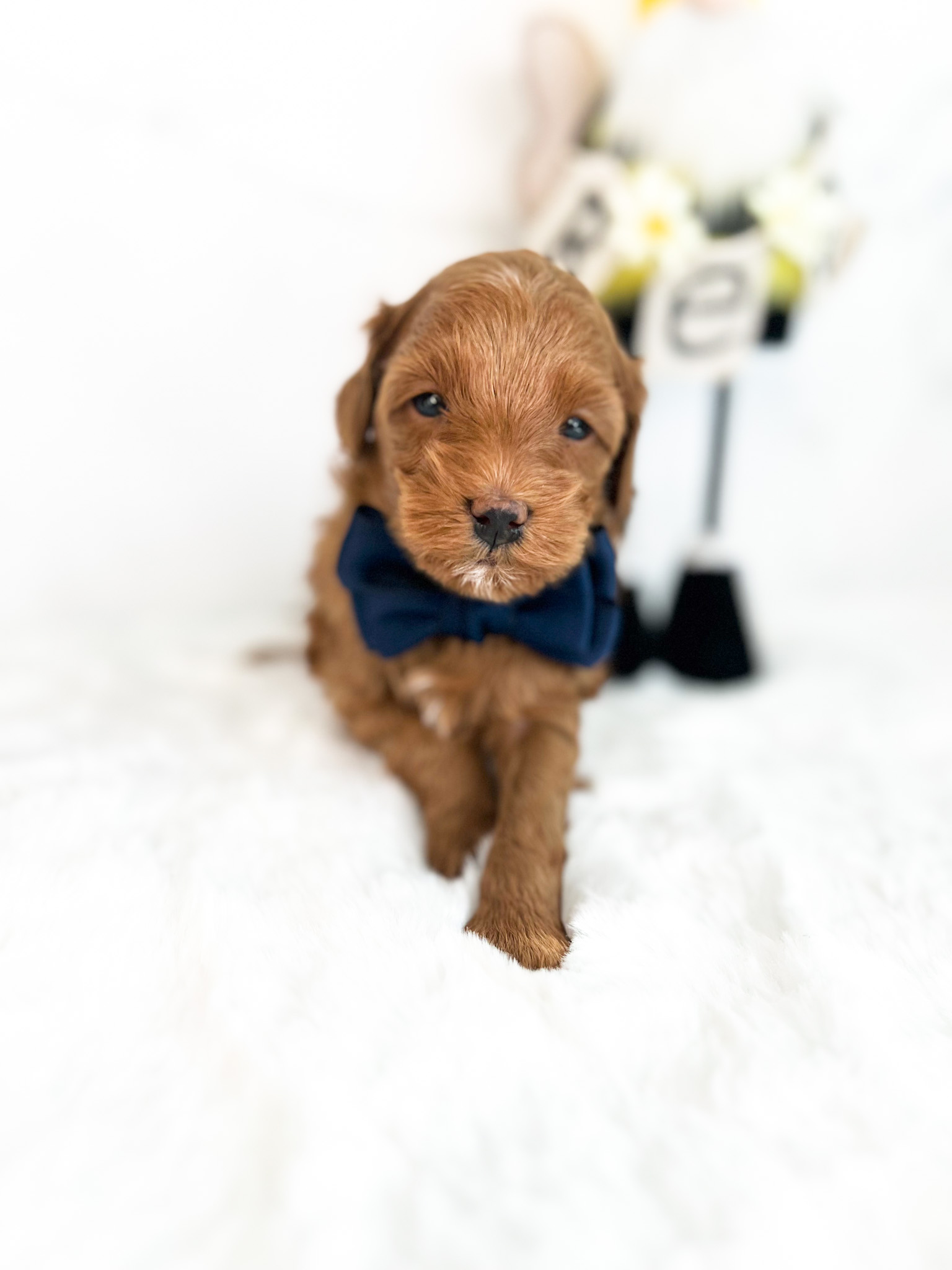A Goldendoodle is a hybrid dog breed that is a cross between a Golden Retriever and a Poodle. The two breeds were chosen carefully to complement one another. The poodle was chosen for its curly, hypoallergenic coat, and the golden retriever for its pleasant disposition and strong sense of loyalty.
Both are highly intelligent breeds, ranking in the top 5 of the most intelligent dogs. The result is an adorable dog with a lot of personality, intelligence, and friendliness. Goldendoodles have become increasingly popular over the years, and for good reason. They are the perfect addition to any family, with their low-shedding coats, family-friendly temperament, and trainability.
Goldendoodles come in a variety of sizes, from miniature to standard. Miniature Goldendoodles can weigh anywhere from 15 to 35 pounds, while standard Goldendoodles can weigh up to 90 pounds. Their coat can be curly or straight and can range in color from cream to black.
We love these dogs and we know that you will too! Our priorities are great health, even calm temperament, and adorable puppies.
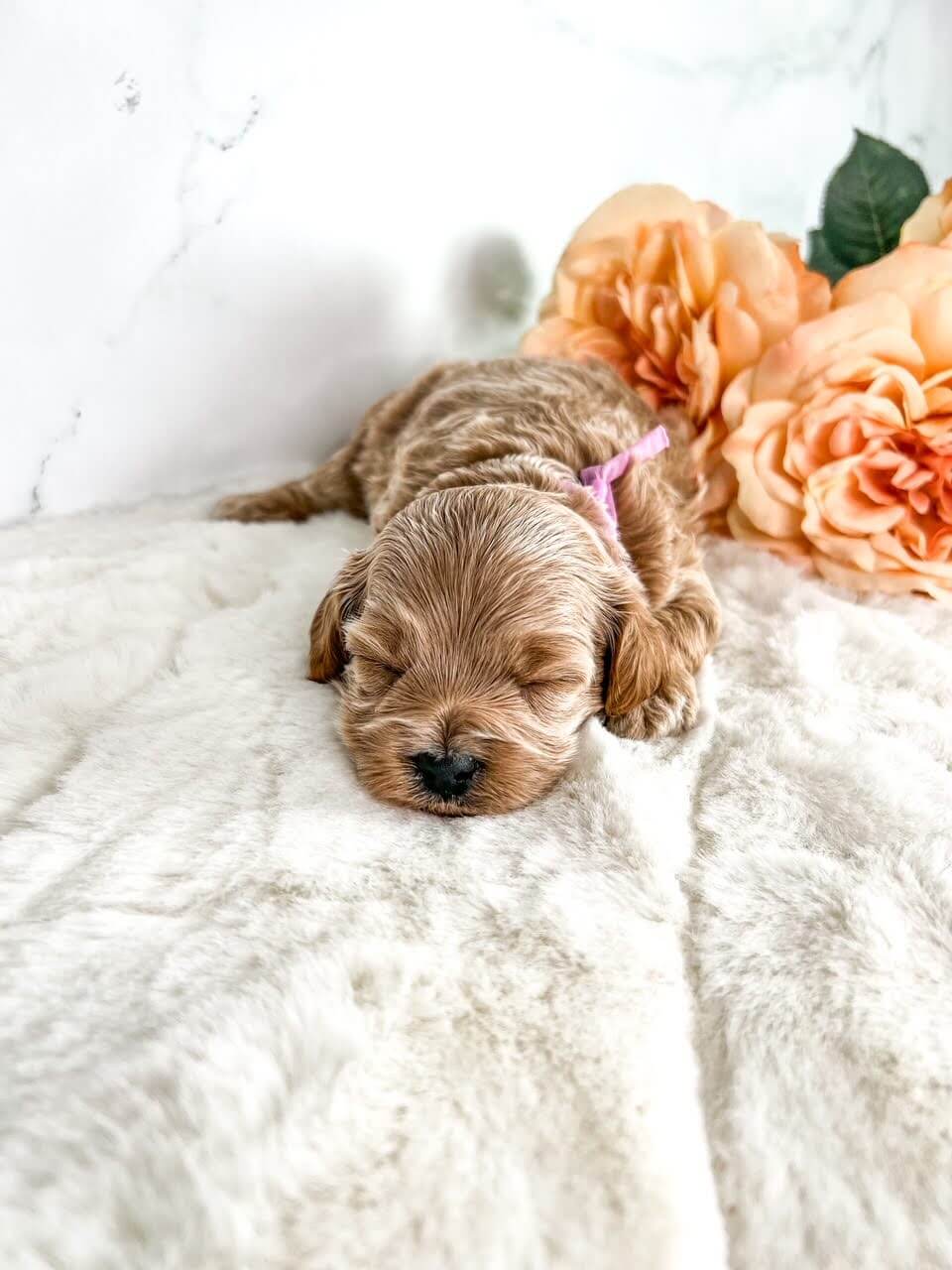
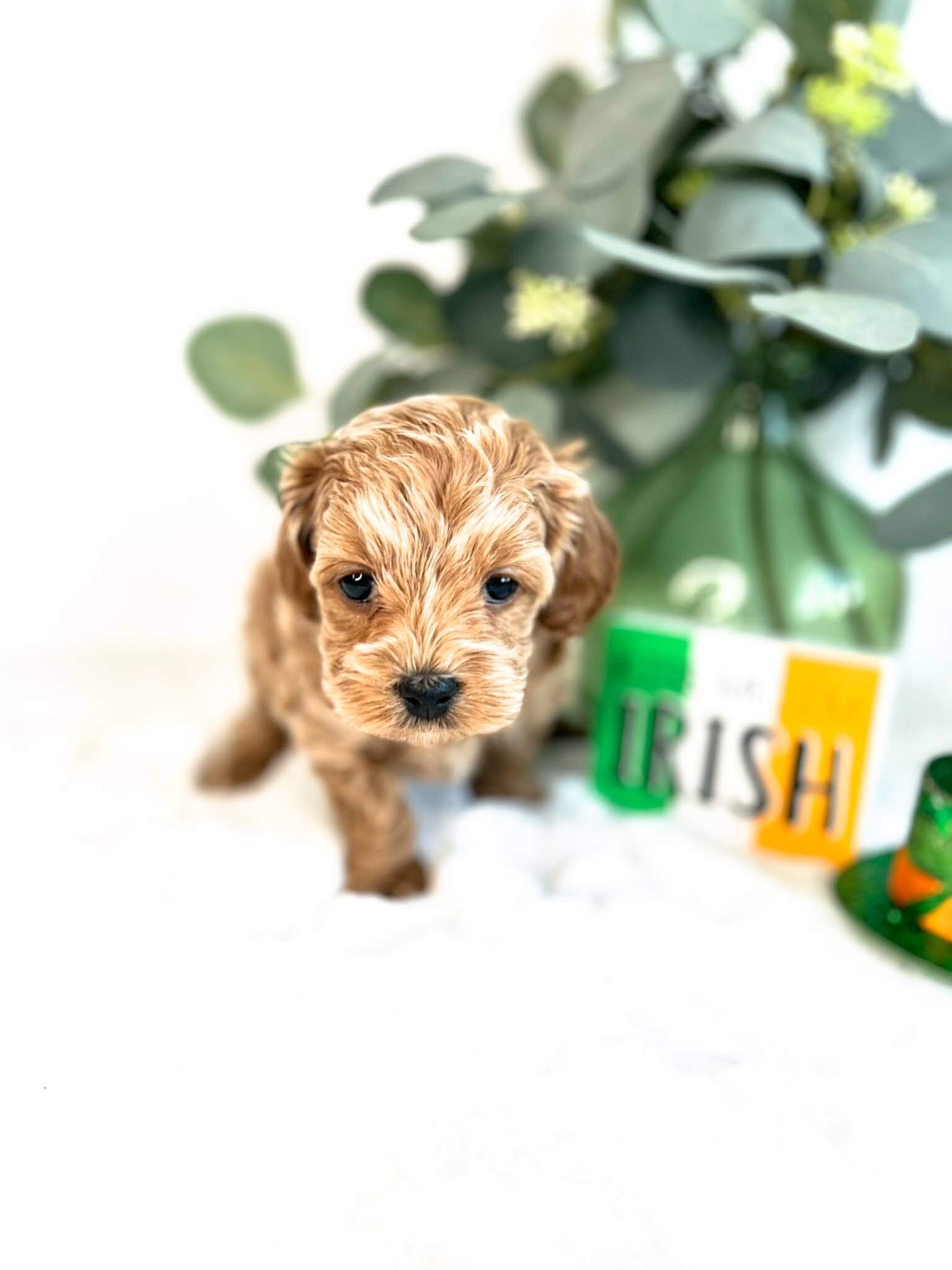
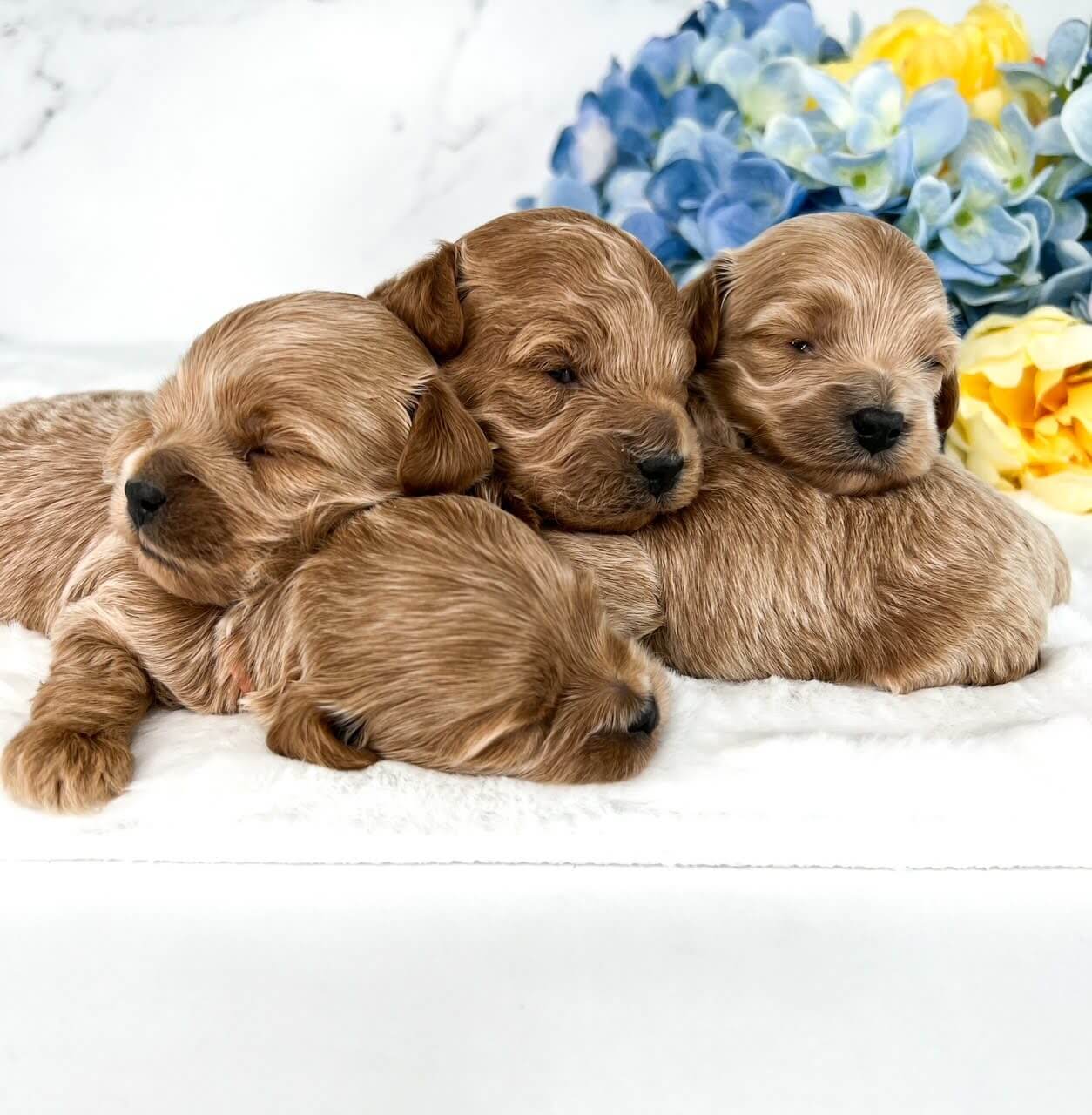
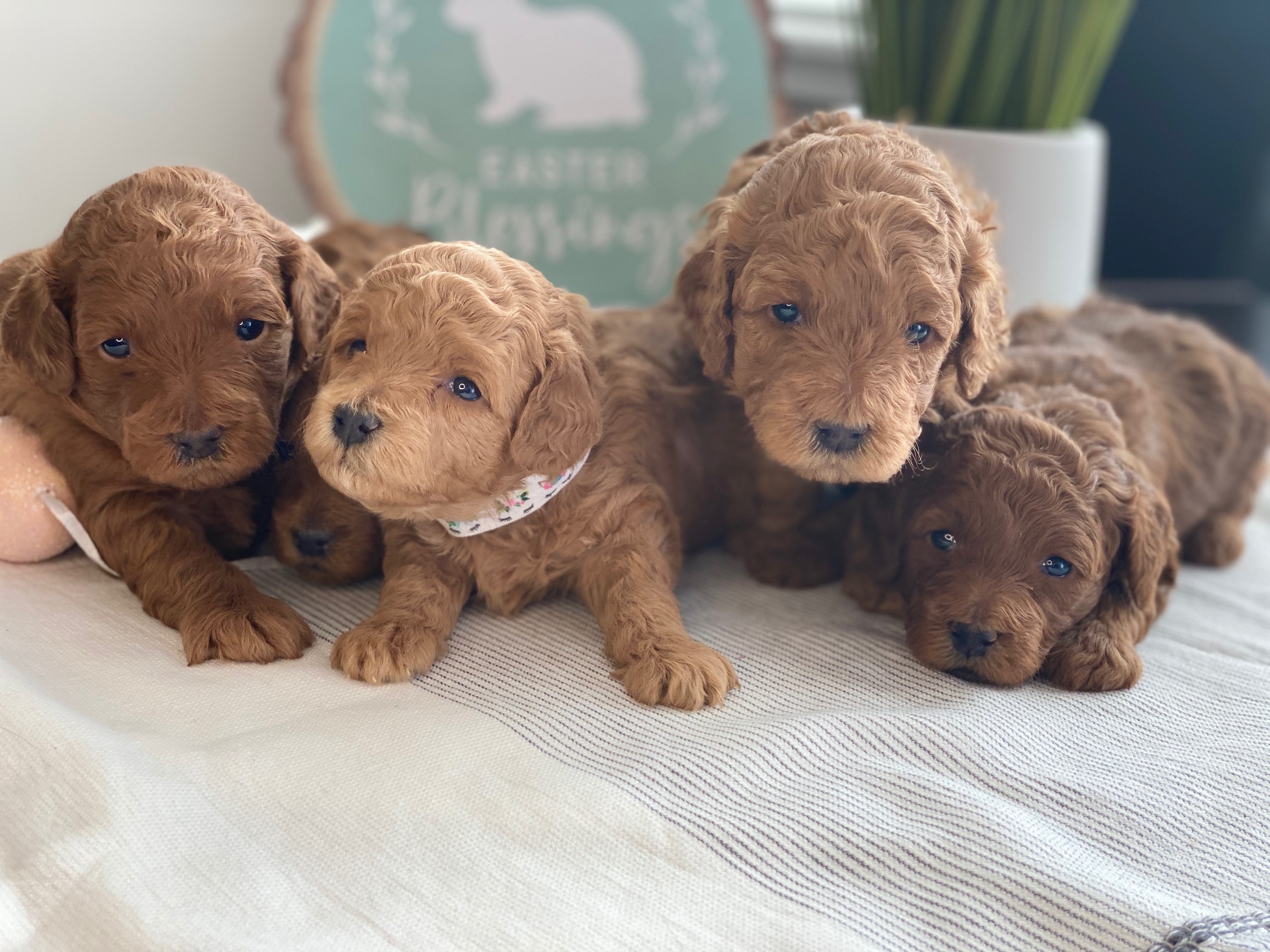
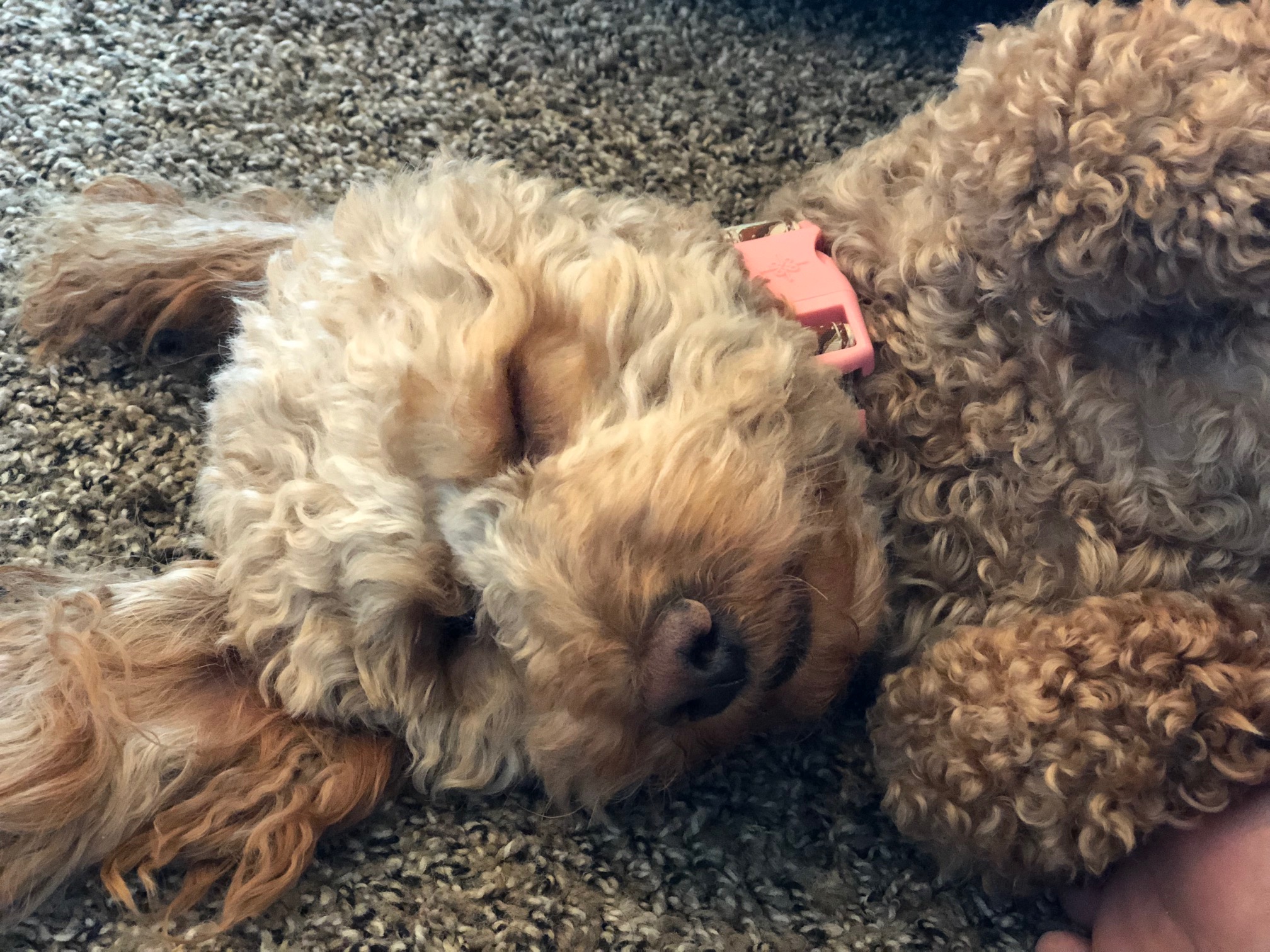
If you’re interested in adopting a Goldendoodle puppy, look no further than Little Teton Doodles. We have a variety of Goldendoodle litters available, and we work hard to ensure that all of our puppies are healthy, happy, and well-socialized. Our Goldendoodle puppies are raised in a loving and nurturing environment, and they receive the best care possible from the moment they are born.
We are committed to helping our clients find the perfect Goldendoodle puppy for their family. We take the time to get to know our clients and their lifestyle to ensure that they are matched with the right puppy. Our Goldendoodles are highly sought after, and we have a waiting list for our litters. If you are interested in adopting a Goldendoodle puppy, we encourage you to contact us as soon as possible to reserve your spot on our waiting list.
The Goldendoodle is a wonderful breed that makes an excellent family pet. With their friendly temperament, intelligence, and low-shedding coats, they are the perfect addition to any household. If you are interested in adopting a Goldendoodle puppy, we encourage you to contact us today to learn more about our available litters and how you can bring home your new best friend.
